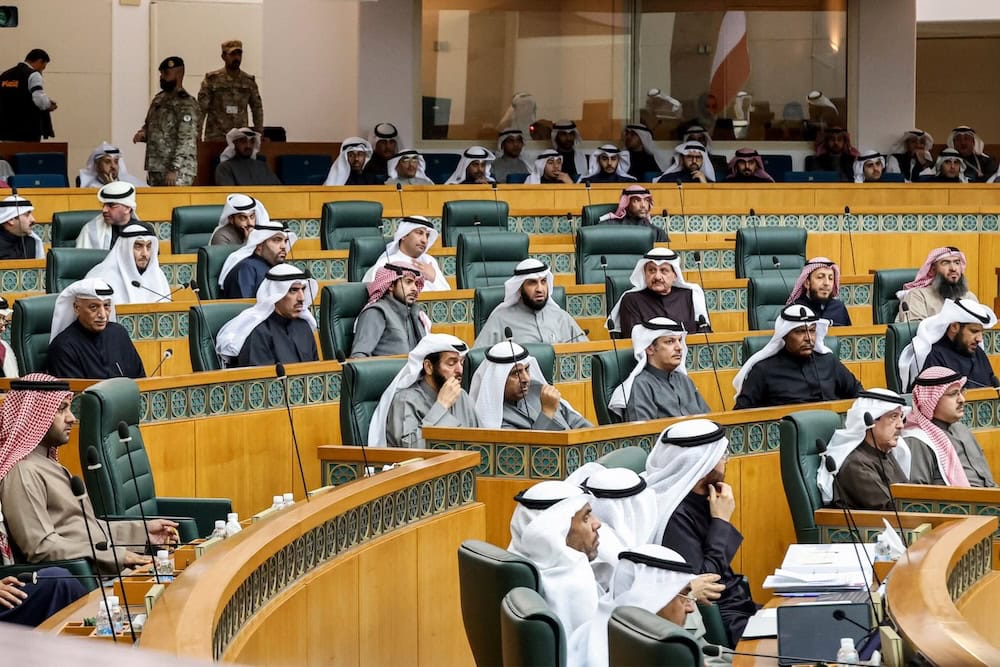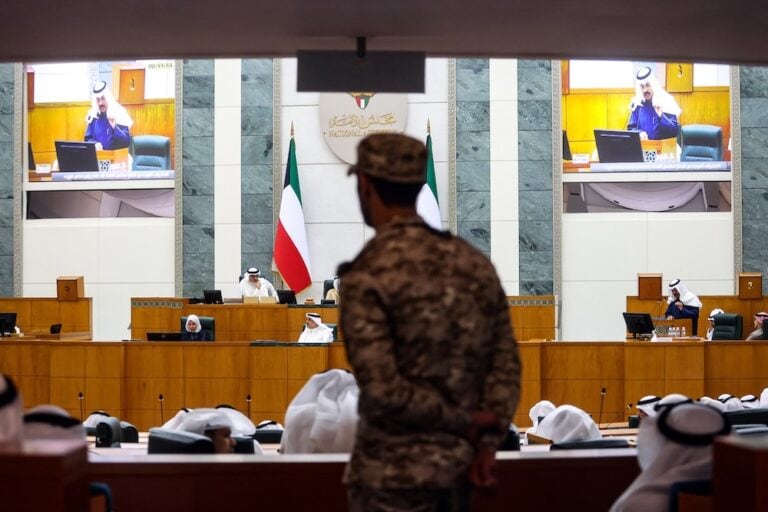While the dissolution of Parliament and the erosion of political rights are troubling, the targeting of former parliamentarians is equally concerning.
This statement was originally published on gc4hr.org on 17 September 2024.
The Gulf Centre for Human Rights (GCHR) has been following with concern the deterioration of Kuwaiti political and civic rights following the decision of the Emir, Sheikh Meshaal Al-Ahmad, to suspend the elected parliament in May 2024 for up to four years. Kuwait has been unique among its neighboring countries of having a fully-elected parliament with genuine powers to enact laws and investigate members of the executive branch of the government.
The move to dissolve the parliament came after a royal decree by the Emir to suspend Elements 3, 107, 174, and 181 of Article 56 of the 1962 Kuwait Constitution. In addition, the royal decree mandated the formation of a Constitutional Committee of experts to review the existing Constitution and to submit their recommendations in six months’ time, for approval by the Council of Ministers and the Emir. The revised Constitution is expected to be voted upon within four years’ time.
The Royal Decision claimed that it aimed to fulfill the nation’s best interest and unity and that the existing Constitution had been used by the Parliamentarians to fulfill personal gains, drive discord among people, mislead the public, and destroy state-building. In addition, the Emir declared that his decision was motivated by the interference of some Parliamentarians in the authority of the Emir, which placed conditions on the formation of the executive branch of government. As a result, the Emir and the appointed Council of Minister, are now in charge of the legislative power of the former Parliament. This is the third time where a Kuwaiti elected Parliament has been dissolved, and often after Parliamentary questioning of Ministers from the ruling family on cases of political corruption.
Though the dissolution of the Parliament and the erosion of political rights is of great concern, the targeting of former parliamentarians is of equal concern. On 18 May 2024, a former parliamentarian, Anwar Al-Fikr, was summoned by the Public Prosecution and detained for 21 days, after making statements in one of his campaigning events which were considered as impinging on the authorities of the Emir. No detailed description was made available about what was considered in his speech as unlawful. He was then released on bail on 28 May 2024 but the Criminal Court decided to sentence him for three years on 29 July 2024. On 9 September 2024, Al-Fikr was released on bail and placed under a travel ban after a decision by the Court of Appeal.
Similarly, the Court of Appeal has tried two other parliamentarians, Hamad Al-Olayan and Mesaed Al-Quariafa for the same charges. Al-Olayan, was released on bail and under a travel ban until his appeal, which is scheduled for 30 September 2024. Al-Quariafa was kept in detention until his next appeal, also on 30 September 2024, after an initial ruling of four years of imprisonment.
In a statement on 11 May 2024, published on its account on X, the Public Prosecution mentioned that other citizens will be summoned for investigation for publishing statements on their social media accounts on X platform, which were questioning the authorities and rights of the Emir and critiquing his integrity.
GCHR has published a recent report expressing deep concern about the state-led campaign to strip greater numbers of Kuwaiti citizens of their nationalities in a blatant violation of the International Declaration of Human Rights. It is paramount to draw attention to the dissolution of the Parliament on the unchallenged continuation of such dire violations, in addition to other violations related to political corruption of the executive branch of the government.
Recommendations:
GCHR, therefore, makes the following recommendations:
- For the Kuwaiti Emir to respect the Kuwaiti public’s rights and restore the existing, elected Parliament with its full power to investigate corruption and question any unlawful practices of the government’s executive branch.
- For the Kuwaiti authorities to drop all charges against former Parliamentarians and citizens for expressing their dissatisfaction of the impinging of the Emir on their political rights and freedom of expressions.
- For the Emir and Council of Ministers to ensure that the public is actively engaged in the lawful and just deliberation of Nationality Concerns of citizens in accordance with Kuwaiti commitments under international treaties and local laws.
- For Parliamentarians all over the world to show solidarity with their Kuwaiti counterparts by making public statements and corresponding with the Kuwaiti government to respect Parliamentarians’ roles in the state and protect their safety.



